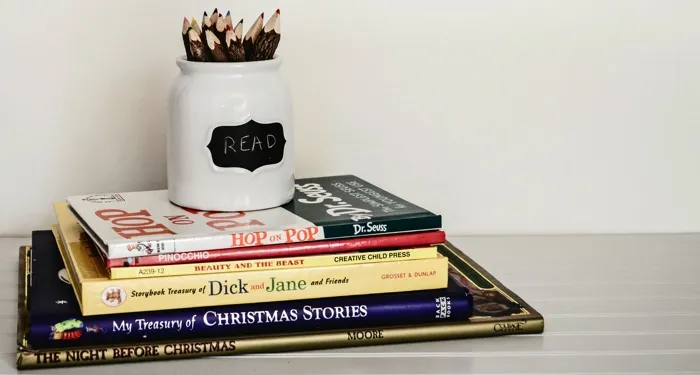As a school librarian, I know that one of the biggest challenges of this time we’re in is helping parents to keep kids reading, while also acknowledging the stress families are under as they go through this time. In addition to helping your kids continue their education online, your family may also be dealing with trying to work from home, exposure from working an essential job, or stress about health and finances. So, before I dive into some guided reading lessons plans for this time, I want to emphasize that just having your kids read is enough. Don’t feel like you need to monitor their free reading, or supplement what is being offered by their usual school. However, if you would like to work through some guided reading lesson plans with your child, I believe it can be a rewarding experience that helps grow a love of reading!
What is guided reading?
Guided reading is a method of literacy instruction that is generally done in a small group setting in a way that allows students to encounter and understand ideas and concepts they have not seen before. Working with their educator, readers might go over previously read text or words, apply known reading strategies to new texts, and/or engage in conversations about what they have read.
For parents or guardians interested in working with their student, my recommendation would be to start by reading new texts together and then discussing what you’ve read. For younger kids, this might mean having them read some new sentences from an age-appropriate text that makes use of words they already know.
For older children, try reading a chapter book together and discussing new words, ideas, etc. as they come up. This is a great chance to engage with your child over a book you enjoyed as a kid or a newer one that looks enticing! (We have a guide to 50 of the
best children’s book series here!)
So, where do I start with guided reading lesson plans?
If your child usually attends a K–12 school outside of the home, they either already have or will probably soon be receiving some sort of distance learning, including reading and literacy instruction. To help your child maintain consistency and a sense of routine, completing these lessons is a great way to help them stay connected with their schoolwork. Talk to your child about what they’re reading for school and ask them to describe the strategies they’re using to you.
If you’re looking for questions to ask to prompt discussion and encourage skills like inferring,
these resources from Scholastic are a good place to start. Again, don’t feel like you need to reinvent the wheel or develop a complete
homeschool curriculum! Focus on authentic conversations with your kid about what they’re doing in school and let these discussions lead you to other reading opportunities.
Guided Reading Lesson Plans For Pre-Readers
If you’re looking to do some home preschool or other early literacy work, there are a lot of guided reading lesson plans out there that can help set your little one on a reading path. Activities like letter flash cards, simple sight words, and phonics exercises are all a great, literacy promoting ways to spend time.
This list of 20 early literacy activities provides some great ideas that you can incorporate into your everyday routine.
At this age, kids can answer straightforward questions about what they’re reading,
such as these based on the Common Core State Standards. Consider using these questions to discuss your child’s favorite books or to explore a new book together. It’s also worth seeing if any libraries or book stores in your area are offering their usual story times online, as these are designed to promote literacy in younger readers!
Guided Reading Lesson Plans For Older Kids
A major goal of most guided reading lesson plans is to expose students to new texts and ideas that they can apply their prior knowledge to when reading. A great way to support your child’s reading is to let them pick subjects they are passionate about and help them find level-appropriate sources in order to learn more.
Read Works allows students to access articles in a variety of subject areas that are tied to their grade level. Students can annotate as they read, and articles come with vocabulary support and question sets that can deepen comprehension and inspire discussion. Parents can set up an account for their child and monitor what they’re reading and access question prompts for meaningful analysis.
Supported by the International Literacy Association and the National Council of Teachers of English, Read Write Think gives teachers and parents access to language arts materials for grades kindergarten through twelfth. You can find everything from games to help support reading to printable read-alouds and bookish podcasts here, and the step by step instructions make it easy to work through the lessons.
Common Lit focuses on resources for reading, writing, and problem-solving and parents and guardians can create a free account for their child to use. With a giant library of both fiction and non-fiction texts, Common Lit is a great resource for older students who might need sources on a particular theme or in a particular genre for their class. Texts can be read on their own or as part of a unit and students can browse by literary device or grade level to find what they are looking for or interested in reading. Text sets are also available in Spanish.
Other Resources
If you’re a teacher looking for formal lesson plans, or a full-time homeschooler,
check out these great lesson plans from the Warsaw schools and this
list of guided reading lesson plan resources from reading specialist Judy Araujo.











